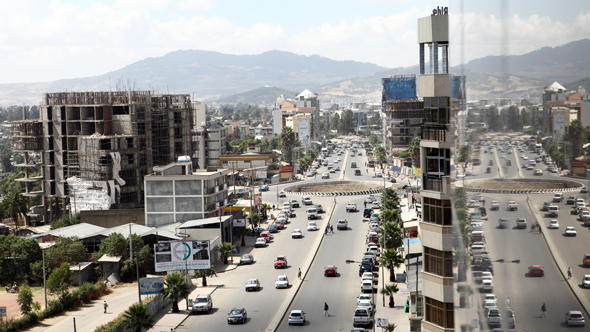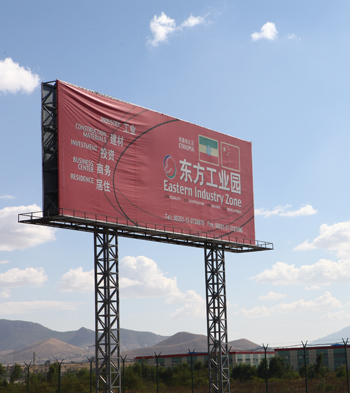Ethiopia: Striving to achieve a middle income status by 2025
Ethiopia Top Stories
Ethiopia: Striving to achieve a middle income status by 2025
Certain economic analysts project the country’s per capita income (currently lowest in the region) to reach up to USD 4,000 within the coming ten years. Such achievement will make Ethiopia—a country previously described as ‘the poorest country in the world’—one of the top three powerful economies on the continent.

Ethiopia: Striving to achieve a middle income status by 2025
By Bewket Abebe
ADDIS ABABA – Despite the exceptional economic growth of Ethiopia, the progress forward is not only about success stories.
There have been serious failures with regard to the trade balance. The country’s trade balance has deteriorated over the last few years. Following the serious decline of its export revenue, the country recorded a trade deficit of USD 2,177.8 million in 2013. Worse than ever, the country registered a trade balance of USD -1581.02 million in the last fiscal year; indeed a serious decline from its former performance (an average of USD -956.7 million for the previous seven years).
“The country´s potential in terms of resources is showing that Ethiopia will very soon be one of the leading economies.”
Another barrier to the economic growth of Ethiopia is claimed to be the state monopoly over the majority of projects.
Though challenges remain, Ethiopia will undoubtedly retain its robust growth rate. The World Bank asserts the country’s GDP will grow by 8.6% in the coming fiscal year.
Furthermore, Ethiopia is currently striving to achieve a middle income status by 2025 through its public projects. With the involvement of Chinese companies, the country is working hard on networking all areas in the country with roads, bridges and railways. They are working towards extending the road network to 64,000 kilometers by mid-2015.
Another huge investment is being undertaken in the telecom industry—by a vendor financing agreement of USD 1.6 billion signed between Ethio-telecom, the sole telecom operator in the country, and the two Chinese telecom giants, ZTE and Huawei. “The infrastructure development in this country is the basis for the economic growth and a huge push is being made for this by the public sector, in order to have a vibrant economy in the nation,” comments Getachew Regassa, secretary general of the Addis Ababa Chamber of Commerce & Sectoral Associations (AACCSA).

The power sector is also among the areas where the future of the country’s economy eyes potential competitiveness. The country has launched various giant projects in the power sector and it aspires to become a power hub of the region. The Grand Renaissance Dam—a dam on the Nile River, which is supposed to be the largest in the continent—is currently underway and expected to be completed within the next three years. Once completed, the dam will generate 6,000MW of electricity. Following the completion of the project, the country has a plan to export electricity to seven countries in the region including Egypt. In addition to the Renaissance Dam, there are 17 other hydroelectric stations either under construction or already completed. In addition, there are other ongoing projects in the wind and geothermal subsectors. The Ethiopian Electric Power Corporation, the sole operator of the national grid, has also announced in the late November 2013 that it came up with a project that will increase the country’s power capacity from its current 2,300MW to 37,000MW by 2037.
These projects coupled with the country’s untapped natural resources, particularly in the mining sector (Tantalum), assure that the future of the country’s economy is brighter than ever before. Gerard Hounkponou, chief of UN Conference Centre (Conference Coordination Unit, Conference Services Section), can’t hide his optimism: “The country´s potential in terms of resources is showing that Ethiopia will very soon be one of the leading economies.”
In addition, certain economic analysts project the country’s per capita income (currently lowest in the region) to reach up to USD 4,000 within the coming ten years. Such achievement will make Ethiopia—a country previously described as ‘the poorest country in the world’—one of the top three powerful economies on the continent.
FAIR USE POLICY
This material (including media content) may not be published, broadcasted, rewritten, or redistributed. However, linking directly to the page (including the source, i.e. Marcopolis.net) is permitted and encouraged.